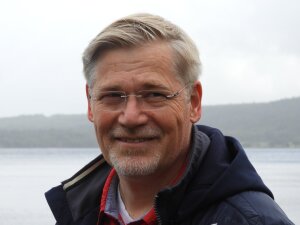The study of biological system requires an interdisciplinary approach which weaves together biology, physics and mathematics. A perspective from these other branches of science helps to better predict and understand biological phenomena.
This approach has been widely applied to questions in medicine and the environment. Investigating the communication between different organisms using a systems biology approach can shed light on regulatory mechanisms and how interactions influence different outcomes.
Prof. Dr. Marc Thilo Figge - Applied Systems Biology, Leibniz - HKI (Jena, Germany)
Thilo Figge
Image: Thilo FiggeGroup leader in Applied Systems Biology at Leibniz Institute for Natural Product Research and Infection Biology - HKI, and coordinator of the research area on “Data Synopsis” in the Excellence Cluster “Balance of the Microverse” at the Friedrich Schiller University Jena.
His group focuses on the research of host-pathogen interaction of human pathogenic fungi, automated processing of microscopic images and spectroscopy, and spatiotemporal computer simulations of agent-based infection models.
- click hereExternal link for lab-website -
Dr. Michael Zimmermann - Structural and Computational Biology Unit, EMBL Heidelberg (Germany)
Michael Zimmermann
Image: Michael Zimmermann
Group leader at EMBL Heidelberg and in the Molecular Medicine Partnership Unit.
The Zimmermann group investigates how members of microbial communities alter their chemical environment and how this shapes metabolic interactions within the microbiome and between the microbiome and its host. He and his team combine high-throughput mass spectrometry, bacterial genetics and computational models, to investigate the genetic basis and the impact of biotansformations within a microbiome and the interplay of the microbiome with the host.
- click hereExternal link for the lab-website -

